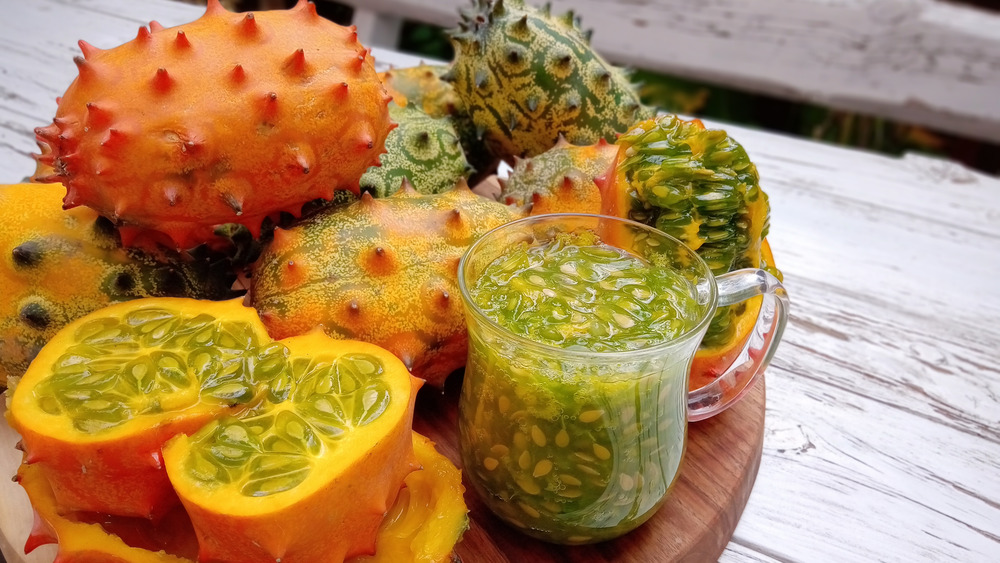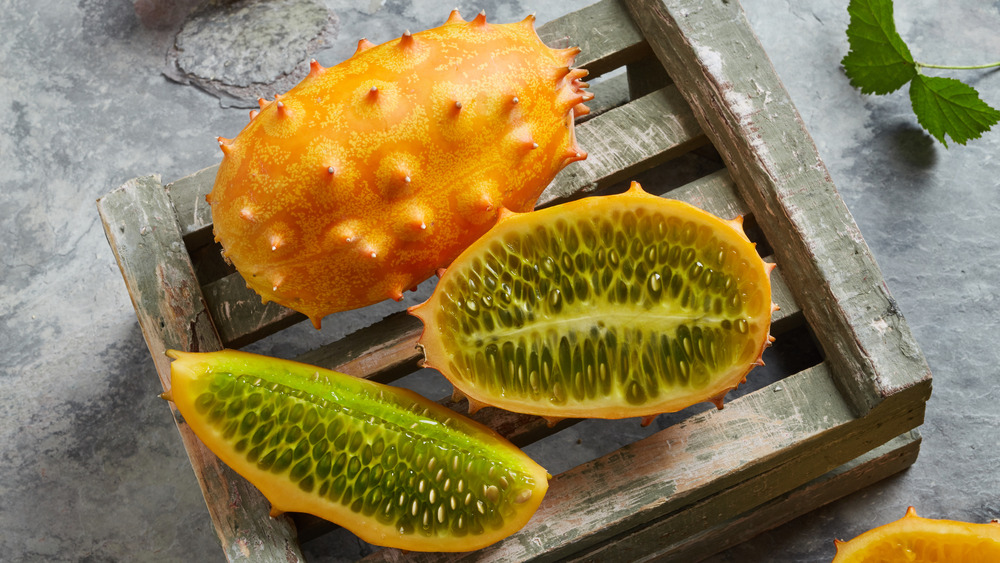The Best Way To Eat Kiwano, According To Andrew Zimmern
You may recognize this bizarre-looking oval and horned fruit as one of the ingredients Thanos harvests from his farm in Avengers: Endgame, but rest assured that the Kiwano melon (or Thanos fruit, as it has been dubbed by Avengers fans online) is no fictional plant. A member of the melon family, Kiwano — or African Horned Melon — is an exotic fruit with origins in Sub-Saharan Africa that has grown increasingly popular around the world due to its robust nutritional value and unique taste.
Its rind is spiky, thick, and turns bright orange in color when it has reached its peak ripeness, while its center is bright green, pulpy, and gelatinous. Its flavor is so unique that we found it described differently by various sources, with Enzed Exotics profiling its taste as a combination of banana, passionfruit, and lime, and celebrity chef Andrew Zimmern detailing the flavor, in a recent Instagram post, as "cucumbery, tangy, slightly sweet when ripe with hints of melon." Luckily for the uninitiated, Zimmern offers some surprising ways to use this fruit.
The best ways to prepare kiwano
When it comes to consuming Kiwano, Zimmern recommends cutting it in half and scooping up the jelly-like pulp as-is, garnishing with a dab of salt and a drizzle of honey before slurping it down (via Instagram). The chef is also a passionate proponent of making a vinaigrette out of the fruit's mildly sweet and tangy center, as well as recommends it as an addition to yogurt and salads. Enzed Exotics encourages trying it in salsas, raita, guacamole, and as a base for drinks, both alcoholic and otherwise. Its flavors are said to also pair well with seafood and Asian or Mexican cuisine due to its refreshing tangy, citrusy taste.
Not to mention, Kiwano is great for you. According to Healthline, the Kiwano melon is jam-packed with nutrients that are essential to our body's overall health and function. As a result of being 88 percent water, Kiwano melon is low in calories. Though, 16 percent of the fruit's calories come directly from the fruit's high — in comparison to other fruits — protein content. It is high in antioxidants such as vitamin C, vitamin, A, zinc, and lutein. The seeds are edible and a great source of vitamin E.
One single Kiwano melon provides 13 percent of the recommended daily intake of iron. Additionally, Kiwano melon boasts a low glycemic index, which means it won't spike your blood sugar after you eat it like some other high-fructose fruits such as bananas and grapes. However you prepare it, Zimmern encourages, "Try it!"

